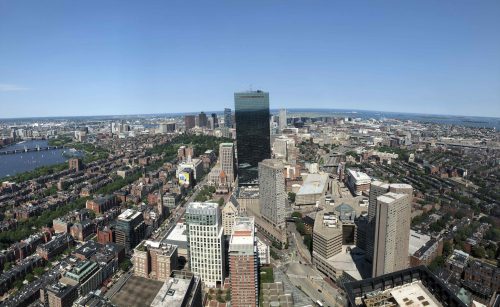As I begin my long walk from the West Campus bus stop to Gross Hall for my next class, I start creating a list of all the homework and tests I have for the next week. I need to do my Biology 201 pre lab, study for my organic chemistry midterm by memorizing 20 chemical reactions, and write a chemistry lab report. Every day, the list accumulates – every time one task is complete, three more pop up. My mind is filled with all the requirements I need for medical school, endless boxes to check for biology, chemistry, volunteering, research, and so much more. My sights are set on what has been my career goal since I was a little girl; there’s a paved path towards my goal in front of me, and as I walk down that path, all other “distractions” are tuned out. The whole world is white noise except for the clear melody of the medical profession.
I’ve been deeply interested in science and medicine since middle school; field trips to the McWane Science Center in Birmingham, Alabama, always captured my full fascination and attention. At Duke, my love of medicine grew to encompass public health and its dimensions of social determinants. My biology major, chemistry minor, and pre-med class requirements don’t allow me time to take classes that further explore those social determinants, so I decided to apply to the DukeEngage Boston program as an opportunity to understand the role education plays in determining health. My initial goal was a very one-dimensional view of education that would directly relate my program back to my medical school path; after all, I had always thought of education as a process that only provides students with factual knowledge, a process that stuffs an empty skull with information and seals it tightly for future use. I believed this knowledge would then lead to high-paying jobs, which provide money for health services. Without education, people fall into a cycle of poverty, rotating through poor health and scarce job opportunities.
While my old thought process does partially ring true, the past five weeks have taught me that education is more than an external process – it’s an internal one, too. Education is not solely about teaching students textbook material; it’s about drawing out the inner potential in students, helping them access their talents and work towards their goals and dreams. If we yearn to be successful in our careers and be happy with our lives, we have to educate ourselves about…ourselves. We have to discover our own passions, recognize our talents, strive to fulfill our potentials, and most importantly, we have to understand the world around us. Duke has a tendency to feel like a bubble – we float around our campus, pulling all-nighters to study, bouncing from one resume-boosting extracurricular to the next. My days are filled with studying, research, dance, and work; this cycle repeats every day, and I’ve sacrificed time I could have used to learn about social issues, interact with the Durham community, and self-reflect. I haven’t taken the time to be critically conscious – to develop an in-depth understanding of the social and political systems that influence all lives and my place within them. We can only truly understand ourselves when we understand our place and influence in the world.
This concept of critical consciousness is crucial for not only my personal growth, but also my professional growth. Any profession in which you provide a service to another person or community, whether it’s education or healthcare, requires the fundamental aspect of trust. The patient-provider and educator-student relationships create a sacred bond between two people in which each must fully trust the other to work through a problem together. If we don’t take the time to examine ourselves, our inherent biases, and our place in an inequitable system, then we will never be able to form that bond with the people and the communities with which we interact. While education in basic subjects like math, history, and science is important, it’s not the only form of education that we should pursue; we have to take the time to educate ourselves in critical consciousness. We must “do the work” (as Dr. Malone says) in recognizing the discriminatory, inequitable structures we live in, and even though it’s difficult, we have to think about the roles we play in those structures. Simply attending Duke and participating in DukeEngage is a privilege. For so long, I believed anything that wasn’t on a checklist of requirements was a “distraction.” Now, I realize that those “distractions” are the keys to my growth, my career, and my happiness.
As Duke students, it’s easy to have tunnel vision and only think about our pre-professional paths. We can lose sight of the problems around us and become lost in our own privilege; self-interest can overwhelm our minds. We can’t and shouldn’t forget about the world that exists around us. We have to become critically conscious and strive to improve both ourselves and the systems we live in. It’s easy to think that “it’s not your place” to speak up about an injustice you see. Of course, it’s important that we speak with, not for, the people with whom we are standing, but still we must speak. Silence leads to complacency, and complacency is allowing a system that promotes unjust treatment to succeed. No matter what major or career a person pursues, I think all students would benefit from taking a course, reading a book, or simply talking to others about current social issues and thinking critically about themselves. Advanced courses in biology, chemistry, computer science, and engineering can propel your career, but it’s the skills of empathy, self-awareness, and critical consciousness that will help you tune into the white noise and hear the song that’s been playing all along.

